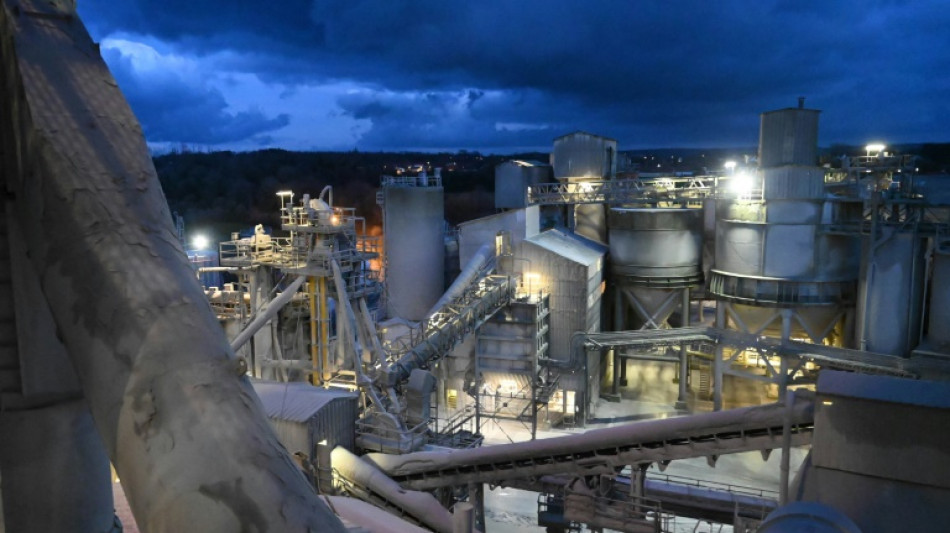
-
 Fans cheer for absent Ronaldo as Saudi row deepens
Fans cheer for absent Ronaldo as Saudi row deepens
-
Violence-ridden Haiti in limbo as transitional council wraps up
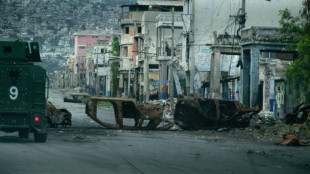
-
 Hundreds protest in Milan ahead of Winter Olympics
Hundreds protest in Milan ahead of Winter Olympics
-
Suspect in murder of Colombian footballer Escobar killed in Mexico

-
 Colombia's Rodriguez signs with MLS Minnesota United
Colombia's Rodriguez signs with MLS Minnesota United
-
Wainwright says England game still 'huge occasion' despite Welsh woes

-
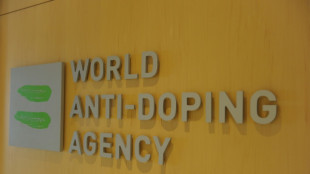 WADA shrugs off USA withholding dues
WADA shrugs off USA withholding dues
-
France detects Russia-linked Epstein smear attempt against Macron
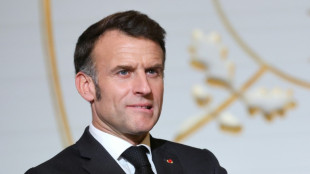
-
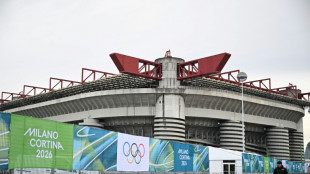 Winter Olympics to open with star-studded ceremony
Winter Olympics to open with star-studded ceremony
-
Trump posts, then deletes, racist clip of Obamas as monkeys
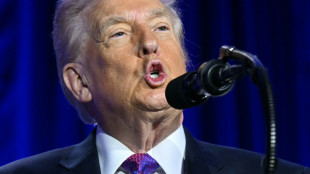
-
 Danone expands recall of infant formula batches in Europe
Danone expands recall of infant formula batches in Europe
-
Trump deletes racist video post of Obamas as monkeys
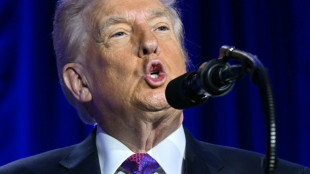
-
 Colombia's Rodriguez signs with MLS side Minnesota United
Colombia's Rodriguez signs with MLS side Minnesota United
-
UK police probing Mandelson after Epstein revelations search properties
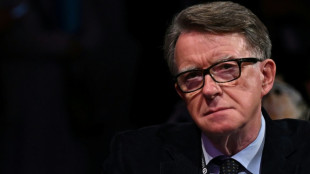
-
 Russian drone hits Ukrainian animal shelter
Russian drone hits Ukrainian animal shelter
-
US says new nuclear deal should include China, accuses Beijing of secret tests
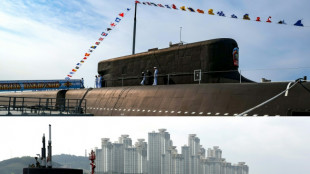
-
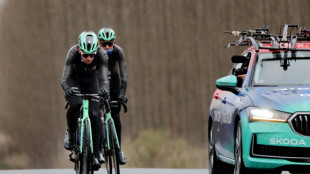 French cycling hope Seixas dreaming of Tour de France debut
French cycling hope Seixas dreaming of Tour de France debut
-
France detects Russia-linked Epstein smear attempt against Macron: govt source

-
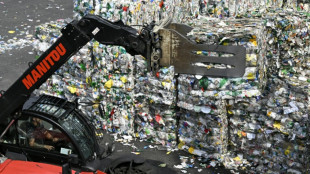 EU nations back chemical recycling for plastic bottles
EU nations back chemical recycling for plastic bottles
-
Terror at Friday prayers: witnesses describe blast rocking Islamabad mosque
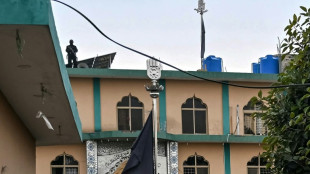
-
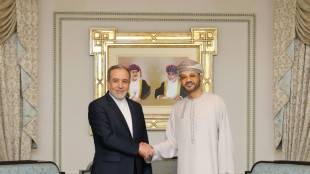 Iran expects more US talks after 'positive atmosphere' in Oman
Iran expects more US talks after 'positive atmosphere' in Oman
-
US says 'key participant' in 2012 attack on Benghazi mission arrested
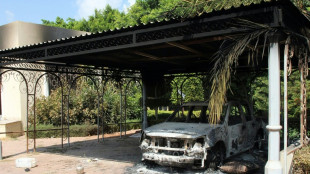
-
 Why bitcoin is losing its luster after stratospheric rise
Why bitcoin is losing its luster after stratospheric rise
-
Arteta apologises to Rosenior after disrespect row

-
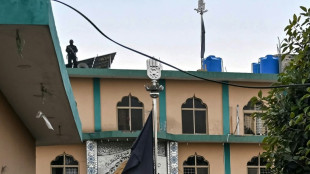 Terror at Friday prayers: witness describes 'extremely powerful' blast in Islamabad
Terror at Friday prayers: witness describes 'extremely powerful' blast in Islamabad
-
Winter Olympics men's downhill: Three things to watch
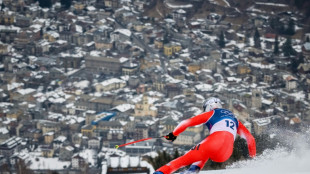
-
 Ice dancers Chock and Bates shine as US lead Japan in team event
Ice dancers Chock and Bates shine as US lead Japan in team event
-
Stellantis takes massive hit on 'overestimation' of EV demand
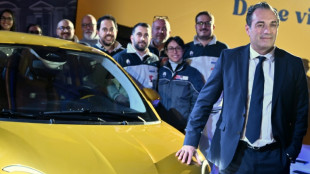
-
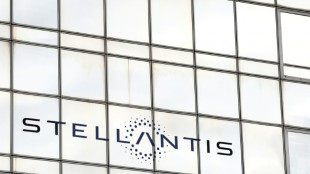 Stocks rebound though tech stocks still suffer
Stocks rebound though tech stocks still suffer
-
Spanish PM urges caution as fresh rain heads for flood zone
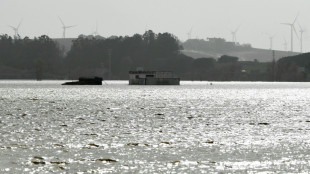
-
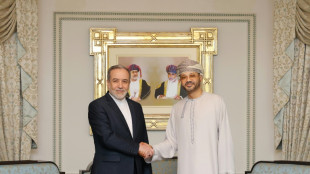 Iran says to hold more talks with US despite Trump military threats
Iran says to hold more talks with US despite Trump military threats
-
Russia accuses Kyiv of gun attack on army general in Moscow

-
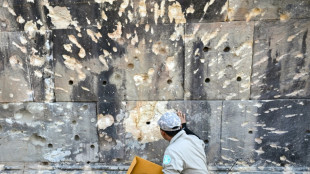 Cambodia reveals damage to UNESCO-listed temple after Thailand clashes
Cambodia reveals damage to UNESCO-listed temple after Thailand clashes
-
Norway crown princess 'deeply regrets' Epstein friendship

-
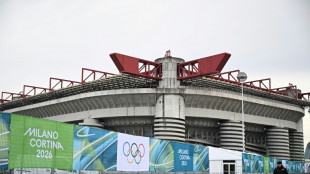 Italy set for Winter Olympics opening ceremony as Vonn passes test
Italy set for Winter Olympics opening ceremony as Vonn passes test
-
England's Jacks says players back under-fire skipper Brook '100 percent'

-
 Carrick relishing Frank reunion as Man Utd host Spurs
Carrick relishing Frank reunion as Man Utd host Spurs
-
Farrell keeps the faith in Irish still being at rugby's top table

-
 Meloni, Vance hail 'shared values' amid pre-Olympic protests
Meloni, Vance hail 'shared values' amid pre-Olympic protests
-
Olympic freestyle champion Gremaud says passion for skiing carried her through dark times

-
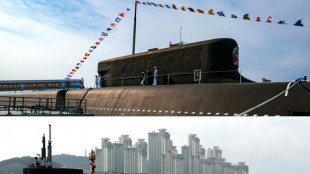 US urges new three-way nuclear deal with Russia and China
US urges new three-way nuclear deal with Russia and China
-
Indonesia landslide death toll rises to 74
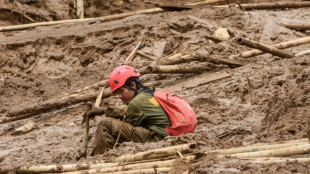
-
 Hemetsberger a 'happy psychopath' after final downhill training
Hemetsberger a 'happy psychopath' after final downhill training
-
Suicide blast at Islamabad mosque kills at least 31, wounds over 130

-
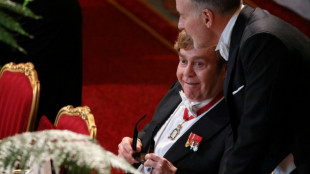 Elton John accuses UK tabloids publisher of 'abhorrent' privacy breaches
Elton John accuses UK tabloids publisher of 'abhorrent' privacy breaches
-
Lindsey Vonn completes first downhill training run at Winter Olympics

-
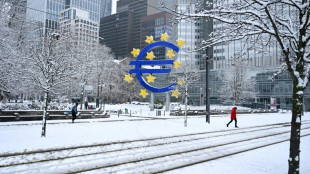 Digital euro delay could leave Europe vulnerable, ECB warns
Digital euro delay could leave Europe vulnerable, ECB warns
-
Feyi-Waboso out of England's Six Nations opener against Wales

-
 Newcastle manager Howe pleads for Woltemade patience
Newcastle manager Howe pleads for Woltemade patience
-
German exports to US plunge as tariffs exact heavy cost

| CMSC | 0.02% | 23.555 | $ | |
| BCC | 2.77% | 91.7 | $ | |
| SCS | 0.12% | 16.14 | $ | |
| NGG | 1.26% | 87.995 | $ | |
| BCE | -1.55% | 25.18 | $ | |
| RIO | 2.61% | 93.565 | $ | |
| CMSD | 0.17% | 23.93 | $ | |
| JRI | 0.54% | 12.95 | $ | |
| AZN | 3.45% | 193.855 | $ | |
| BTI | 1.33% | 62.795 | $ | |
| GSK | 1.94% | 60.34 | $ | |
| RYCEF | 1.54% | 16.88 | $ | |
| RBGPF | 0.12% | 82.5 | $ | |
| VOD | 3.21% | 15.105 | $ | |
| RELX | -2.49% | 29.36 | $ | |
| BP | 2.09% | 38.985 | $ |

Heavy industry turns to carbon capture to clean up its act
For decades heavy industry around Dunkirk in northern France has belched out millions of tonnes of climate-heating gases.
Now the area close to the Belgium border -- one of Europe's industrial powerhouses -- wants to catch its pollution before it escapes.
With factories turning out steel, cement and fertilisers, the Dunkirk area produces more carbon dioxide (CO2) than any other industrial region in France.
In Rety, about an hour's drive from the port city, a never-ending stream of lorries brings limestone to a plant run by Belgian giant Lhoist, the world leader in quicklime production.
The limestone is heated to more than 1,000 degrees Celsius (1,830 degrees Fahrenheit) for 24 hours in kilns 50 metres (165 feet) tall to produce the calcium oxide needed by the steel and paper pulp industries.
"We have the capacity to produce 700,000 tonnes of quicklime a year, so we emit about an equivalent amount of CO2," said Yves Boraccino, the manager of the plant in Rety, where nearly every surface is coated in white dust from a nearby quarry.
- Freezing the CO2 -
Two-thirds of that CO2 is belched out of the plant's chimneys during the limestone calcination process.
The remainder comes from the fossil fuels used to fire up the kilns.
In 2025, the site hopes to start equipping itself with a new mini-factory to capture the CO2.
Carbon capture and storage will be pushed hard by industry at the UN COP28 climate talks in November as a way to slow the rise in the planet's average temperature to around 1.5 degrees Celsius.
But there are still big questions over technologies that are in their infancy, and the world does not have much time.
The International Energy Agency (IEA) says that even if it works, carbon capture would have to be scaled up 100,000-fold by 2050 to hit net-zero targets.
Lhoist has turned to industrial gas giant Air Liquide for help to capture carbon emissions from its Rety plant.
They have developed a technology called CryoCap which will capture the gases and cool them down to -50C (-58F) when CO2 turns to liquid, said Nicolas Droin of Air Liquide.
The CO2 will then be separated off and piped to a terminal in Dunkirk that will hold 1.5 million tonnes of the gas when it opens in 2028.
- 'Industrial revolution' -
The Lhoist site in Rety is not the only one in the area aiming to clean up its act.
A few kilometres away, a cement plant owned by Eqiom is also planning to sequester its carbon pollution and send it to Dunkirk.
"From there, it could be taken by ship to deep geological storage sites in the North Sea," Boraccino said.
The whole project -- estimated to cost 530 million euros ($560 million), much of it with European Union funds -- could, in the medium term, store up to four million tonnes of CO2 per year, according to Air Liquide and its partner, Dunkerque LNG.
That would enable steel giant ArcelorMittal, which is testing a different carbon capture procedure, to connect up to the terminal at some point in the future.
Patrice Vergriete, head of the urban Dunkirk authority, said the region is transforming itself through this low-carbon "industrial revolution".
Carbon capture projects almost tripled globally in 2021 and have almost doubled again since then, according to the IEA.
But in a report in July it also warned against relying on technologies that are "expensive and unproven at scale". So far, it said, only five percent of capture projects have got the green light from investors.
Instead the IEA insisted that the best solution is to reduce the amount of CO2 being generated in the first place.
Z.Ramadan--SF-PST



